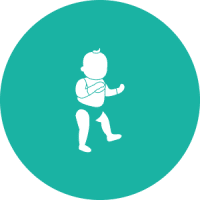
Rob Charteris BSc Hons, RMN, CBT practitioner
Medicines can be very harmful
Before I was a writer and therapist, I trained as a Nurse. During that time, and in my career afterwards, I learned that medicines must be respected. As a nurse, all doses were checked, double checked and countersigned before administration. Even seemingly harmless drugs like aspirin and paracetamol were treated with care and respect.
This still happens in any clinical setting and is because just about all medicines can be harmful. Take paracetamol for instance. It is a major cause of liver disease and the recommended doses are very strict because of this. With this in mind let’s look at how we can learn from the clinical setting.
Keep medicines in a safe place
In hospitals medicines are locked away and if taken onto ward they are kept in a lockable trolley. We can learn from this. Make sure you keep any medicines away from your children. It is advisable to keep them in a locked box in a cupboard that is out of their reach. If you haven’t got a lockable box get one and meantime put them in the highest cupboard you have, well away from where your children play
Tell your children how dangerous medicines can be.
All health professionals who deal with medicines are expected to know about their method of action and side effects. With this in mind make sure you know about the drugs your children are taking. Learn about how they work and be aware of their dangers.
Children are fascinated by small round things and colorful liquids. Medicines that are for children are made this way on purpose to encourage them to take them. Sugar and food colorings are added to make medicines more attractive. This is great when they are refusing to take them and they need them but terrible if the kids find them unguarded. Don’t be afraid to tell your children that the medicines are unsafe and must not be drunk or eaten without an adult present. Explain that they can make them very poorly. They can be poisonous!
Record doses
All medicines given out in hospital are carefully recorded to monitor times and effect, avoid accidents and to leave a trail of responsibility. If your children are on a regular dose of a drug it is important to record each time you give them a dose. This will prevent double dosing, caused by forgetfulness or miscommunication between parents. Make a small table up (it doesn’t need to be fancy) and mark off each time you administer. As I mentioned above some drugs are very bad for us and can build up in our systems. Avoid double dosing by recording doses carefully
Behave like a nurse
Think very carefully whenever your children are on a medicine and when you have them in your house. A few minutes spent behaving like a professionally trained nurse will keep your children safe and well!









